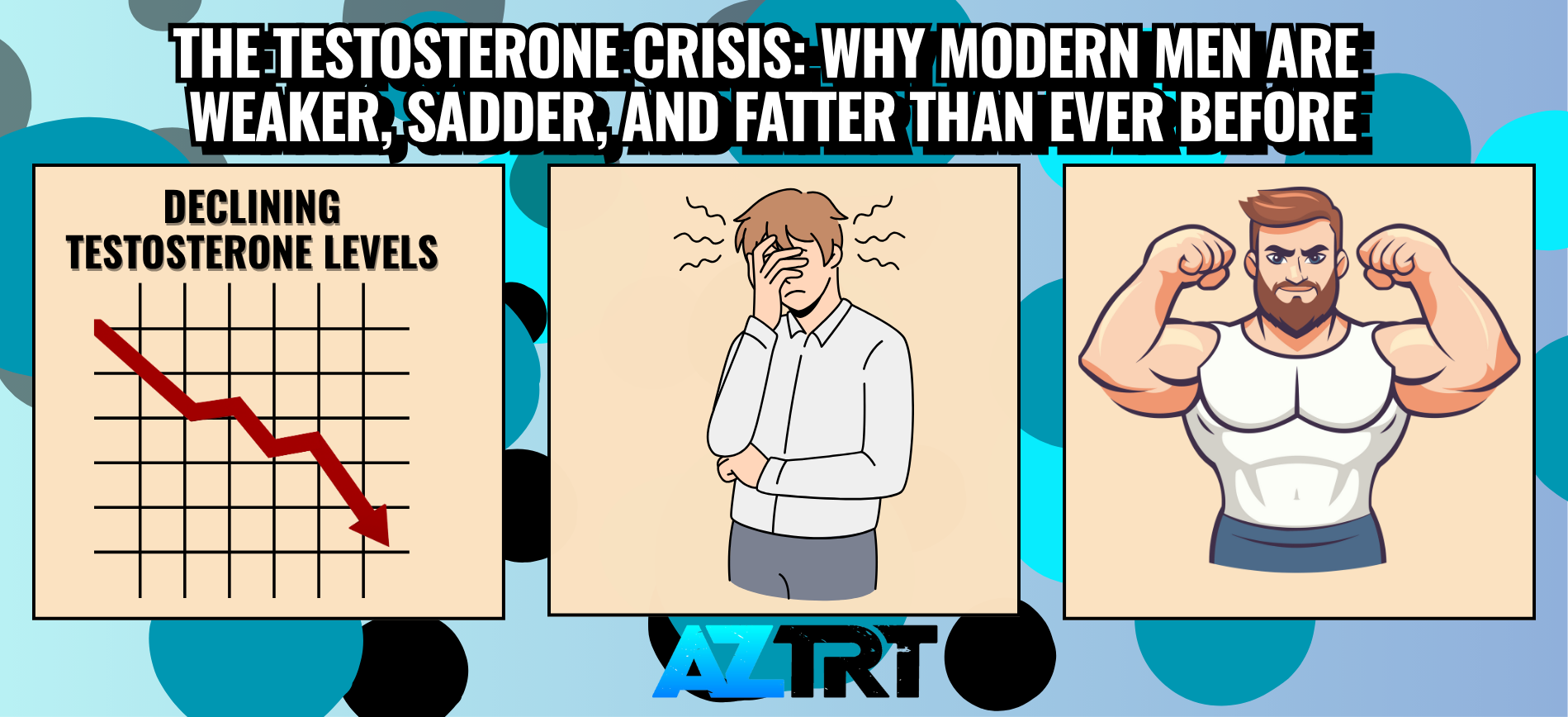
Can Testosterone Replacement Therapy Cause Anxiety? A Comprehensive Guide
As men in Arizona age, many may begin to feel the effects of low testosterone, commonly referred to as “low T.” This condition can lead to a range of symptoms, including fatigue, decreased libido, and even mood changes. One question that often arises is: Can testosterone replacement therapy (TRT) cause anxiety? In this article, we’ll explore this vital question, especially for men living in cities like Phoenix, Tucson, Mesa, and Scottsdale who are considering hormone optimization solutions.
Understanding Testosterone and Anxiety
Testosterone plays a critical role in male health. It is not only responsible for physical traits such as muscle mass and bone density but also influences emotional well-being. While low testosterone levels are often associated with symptoms like anxiety and depression, the relationship between TRT and anxiety is more nuanced.
How Does Testosterone Affect Mood?
- Mood Regulation : Testosterone has been linked to mood regulation. Low levels can contribute to feelings of depression and anxiety.
- Energy Levels : Increased testosterone can improve energy and motivation, reducing symptoms of anxiety.
- Hormonal Balance : Men experiencing low T often have imbalances in other hormones, such as cortisol, which can lead to increased anxiety levels.
Can TRT Cause Anxiety?
Potential Indications
- Initial Adjustments : Some individuals may report feelings of anxiety when starting testosterone replacement therapy. This may be due to the body adjusting to new testosterone levels and hormonal shifts.
- Hormonal Fluctuations : Rapid changes in testosterone levels can cause temporary mood swings or heightened anxiety in certain patients.
- Underlying Conditions : If anxiety persists, it is crucial to consider that anxiety itself may have other underlying causes, such as stress or lifestyle factors.
Benefits of Clinically Supervised TRT
The benefits of clinically supervised, provider-prescribed testosterone replacement therapy are substantial. Working with a trusted provider at an AZ TRT clinic ensures you receive personalized care addressing your unique symptoms and health status. Here’s why it’s crucial:
- Tailored Treatment Plans : Personalized protocols are designed to minimize side effects and boost results.
- Regular Monitoring : Medical professionals will track your progress and adjust dosages as needed to ensure you are feeling your best.
- Holistic Approach : TRT should be part of a broader strategy of health and wellness, which can include nutritional advice, exercise recommendations, and mental health support.
What to Expect When Starting TRT
- Initial Consultation : Discuss your symptoms, concerns, and medical history.
- Hormone Testing : Blood work will typically be done to assess hormone levels.
- Customized Plan : Based on results, a personalized TRT plan is formulated.
- Ongoing Support : Regular follow-ups provide continuous monitoring of mood and overall health.
FAQs About Testosterone Replacement Therapy and Anxiety
1. Can testosterone replacement therapy lead to depression?
While low testosterone levels are commonly associated with depression, initiating TRT can stabilize mood. Any new feelings of anxiety or depression should be discussed with your healthcare provider.
2. What are the common low T symptoms?
Common low T symptoms include: - Fatigue - Reduced libido - Mood swings - Irritability - Difficulty concentrating
3. Is testosterone replacement therapy safe for all men?
TRT can be safe for many men; however, it’s essential to have a thorough evaluation by a healthcare professional to determine if it’s appropriate for you.
4. Where can I find TRT near me?
Locating testosterone replacement therapy in Arizona is simple. Whether you’re in Phoenix, Tucson, Mesa, or Scottsdale, you can find qualified AZ TRT clinics that offer comprehensive care.
Take the Next Step Towards Better Health
If you’re a man in Arizona experiencing symptoms of low testosterone or anxiety, recovering your well-being is just a consultation away! At AZTRT, we offer free virtual consultations to discuss your symptoms and explore the benefits of hormone optimization solutions tailored for you.
Don’t wait—take charge of your health today! Book your free virtual consultation with AZTRT now!
Disclaimer
This blog post is intended for informational purposes only and does not constitute medical advice. For personalized medical advice or a treatment plan, please consult a healthcare provider.
By offering valuable insights about testosterone replacement therapy and addressing concerns such as anxiety, this article aims to provide reassurance and motivate readers to seek further assistance in improving their health.



